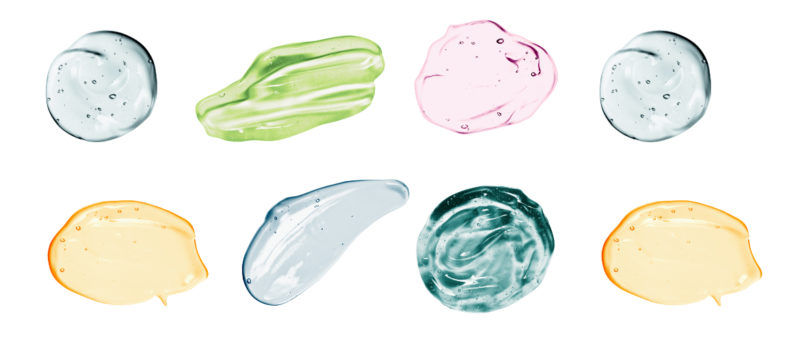So, after the last year, many of us will be feeling fatigued inside and out. Maybe our skincare routine hasn’t been top priority (home-schooling anyone?) and we’re now looking for ways to get that glow back. Well say hello to Retinol – the skincare wonder ingredient that dermatologists can’t get enough of. Retinol is not new, in fact it’s been around since the 1970s, but the leading skincare brands have all recognised its restorative, rejuvenating properties and now it’s a beauty-bag go to for models and influencers alike with hundreds of options on the market.
So, what exactly is Retinol?
Let’s get the science-y bit out the way, Retinol is basically a type of Retinoid that is made from Vitamin A. It’s made up of tiny molecules that travel deep within your epidermis (that’s the outer layer of your skin) and right through to your dermis where it gets straight to work boosting your
collagen and elastin giving you that plumped up effect.
Why should I use Retinol?
From acne-prone skin to anti-ageing, this little superstar has something good for most skin types. Here are just a few of the ways Retinol can improve your skin from the inside out.
- It helps neutralise free radicals which means you get smoothed lines and wrinkles plus it can help shrink your pores
- If you’re prone to spots it can help to unclog pores and minimise breakouts
- It has a wonderful exfoliating property that can really improve the tone and texture of your skin
- It’s been proven to balance your skin’s hydration levels by helping remove dead skin cells that can lead to moisture loss over time
- It can even come to the rescue of oily skin by controlling any excess sebum in pores

How do I use Retinol (or retinoids)?
This is where it can get kind of tricky as there are all kinds of myths out there about Retinol, how it should be used and who should be using it. Because Retinol is one of a group of products that fall under the category of Retinoids, you should easily be able to find a product that’s just right for you.
From a dermatology perspective there are a few pointers you should remember when starting to use any retinoid product. Here are a few tips to getting it right!
- Always start with a mild formula – you’ll need to see how your skin reacts and make sure there’s no irritation. Then if you find it’s settling in you can always move up to a slightly stronger formula, but it’s a marathon, not a sprint. Don’t rush right into a super-strength product in the hope that it’ll give you quicker results.
- Give it time. Patience really is a virtue with any retinoid – you need to give it about two to three months before you start seeing the real results.
- Use a tiny amount – this isn’t the kind of product you need to slather on, a little really does go a long way. Many experts also recommend that you apply to totally dry skin. The jury is out on this one, but apparently it helps give you maximum absorption.
- Don’t use it every night at first. Start out at once a week, check your face isn’t having any reaction then bump it up to twice the following week and so on. If your face is happy with the product then you should still be only using it every other night maximum.
- Don’t neglect your moisturiser and sunscreen – Retinoid products aren’t always a substitute for either so apply sunscreen in the day as normal and if you’re using a product in a pure concentrate (not part of a moisturising cream) then use your normal moisturiser afterwards.
Which Retinol product is right for me?
Retinol or Retinoid based products come in all kinds of shapes and sizes and it can be confusing to know where to start. The best way to work out which is best for you is to think about your skin type and desired result. Products can range from topical ‘on the spot’ treatments right through to serums, creams and even face pads.
Normal and combination skin can start at a slightly higher dosage than dryer skins where a really low percentage is recommended at first. The more skin damage your face has, the higher the dosage you’ll eventually want to use – but you should still be looking to start low and increase over time. Climate can also play a part, obviously none of us are living in tropical heat, but in the months where our skin can be exposed to more sunshine you can switch to a cream to avoid any skin dryness.
Here are a few products to try out, but remember to always consult your dermatologist before you try anything new on your skin.
If you want some great all-round effects, The Pharmacy Retinol Night Serum (https://www.very.ie/the-organic-pharmacy-retinol-night-serum/1600517120.prd?Ntt=retinol) delivers a potent treatment that refines your pores, reduces wrinkle surface and helps correct pigmentation. It’s also suitable for vegans too!
There are also products that work to stop skin irritation too, like the Merumaya Retinol Resurfacing Treatment (https://www.very.ie/merumaya-merumaya-retinol-resurfacing-treatment-30ml/1600327726.prd?Ntt=retinol) this clever blend contains Vitamin A Palmitate and anti-inflammatory ingredients that work to soothe skin while giving you a brightening effect. This is even safe for sensitive and acne-prone skin.
If you really want to give your skin a luxurious treat, Elizabeth Arden Retinol ceramide Capsules (https://www.very.ie/elizabeth-arden-elizabeth-arden-retinol-ceramide-capsules-line-erasing-night-serum-30/1600297150.prd?Ntt=retinol) will give you a double hit of wonder ingredients, with a lightweight serum that combines the smoothing effects of Retinol with the addition of moisture-boosting ceramides. Used for a month, this treatment will help you discover more youthful skin, minimised wrinkles plus improved tone and texture. A real powerhouse!
So, there it is – your Retinol 101. Hopefully these tips and tricks have helped you decide to get some of this skin miracle in your life, there really is a product for everyone to try and you can have that plumped up, glowing skin you deserve!

